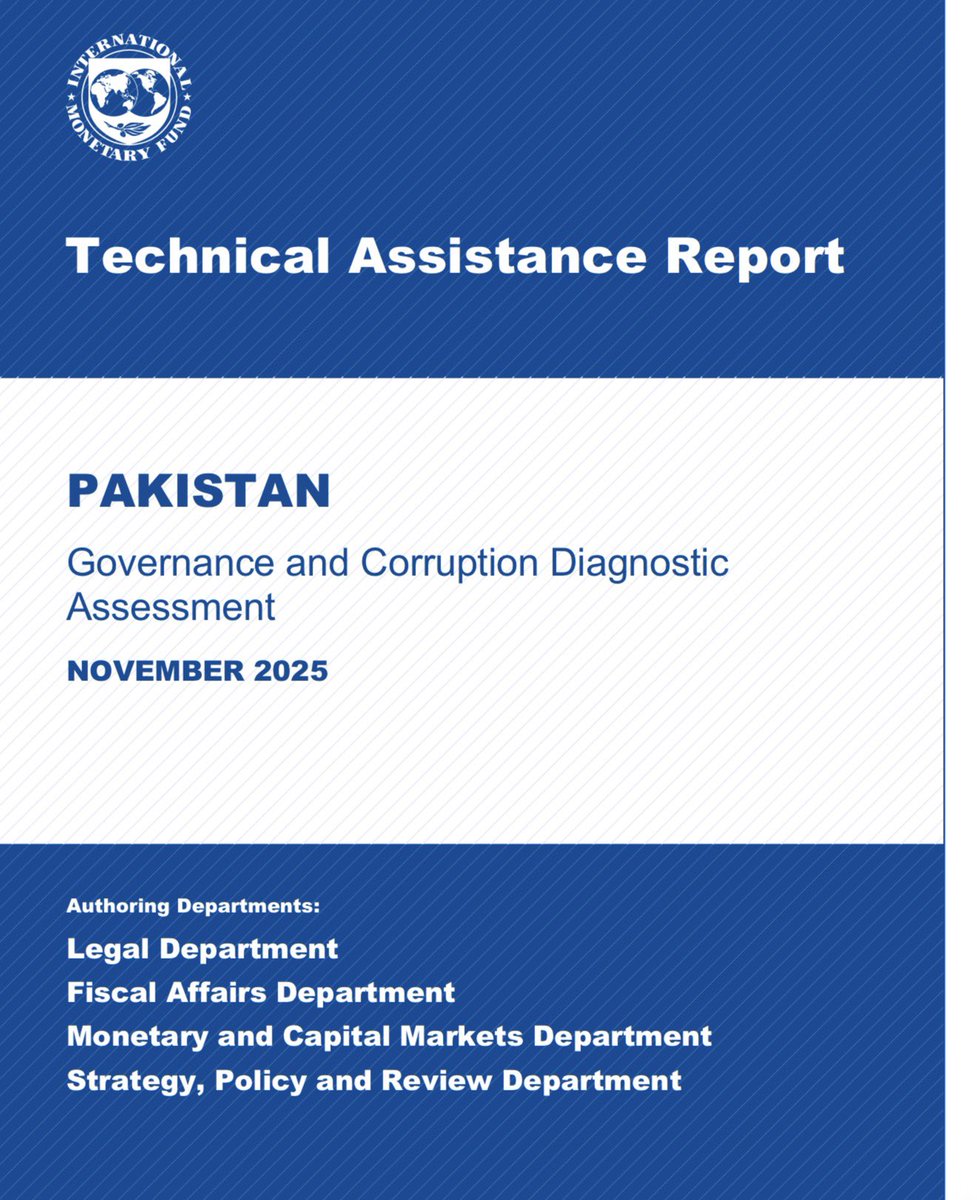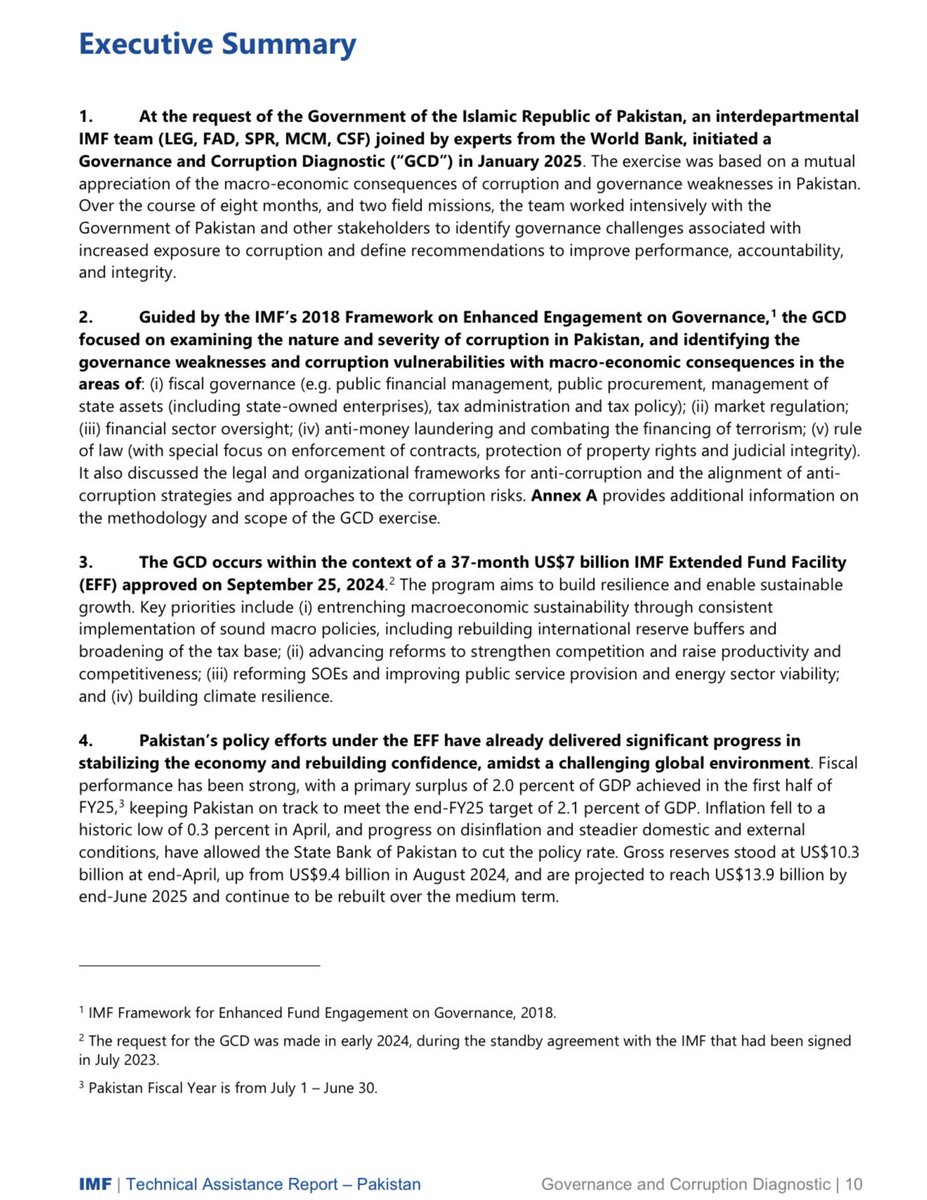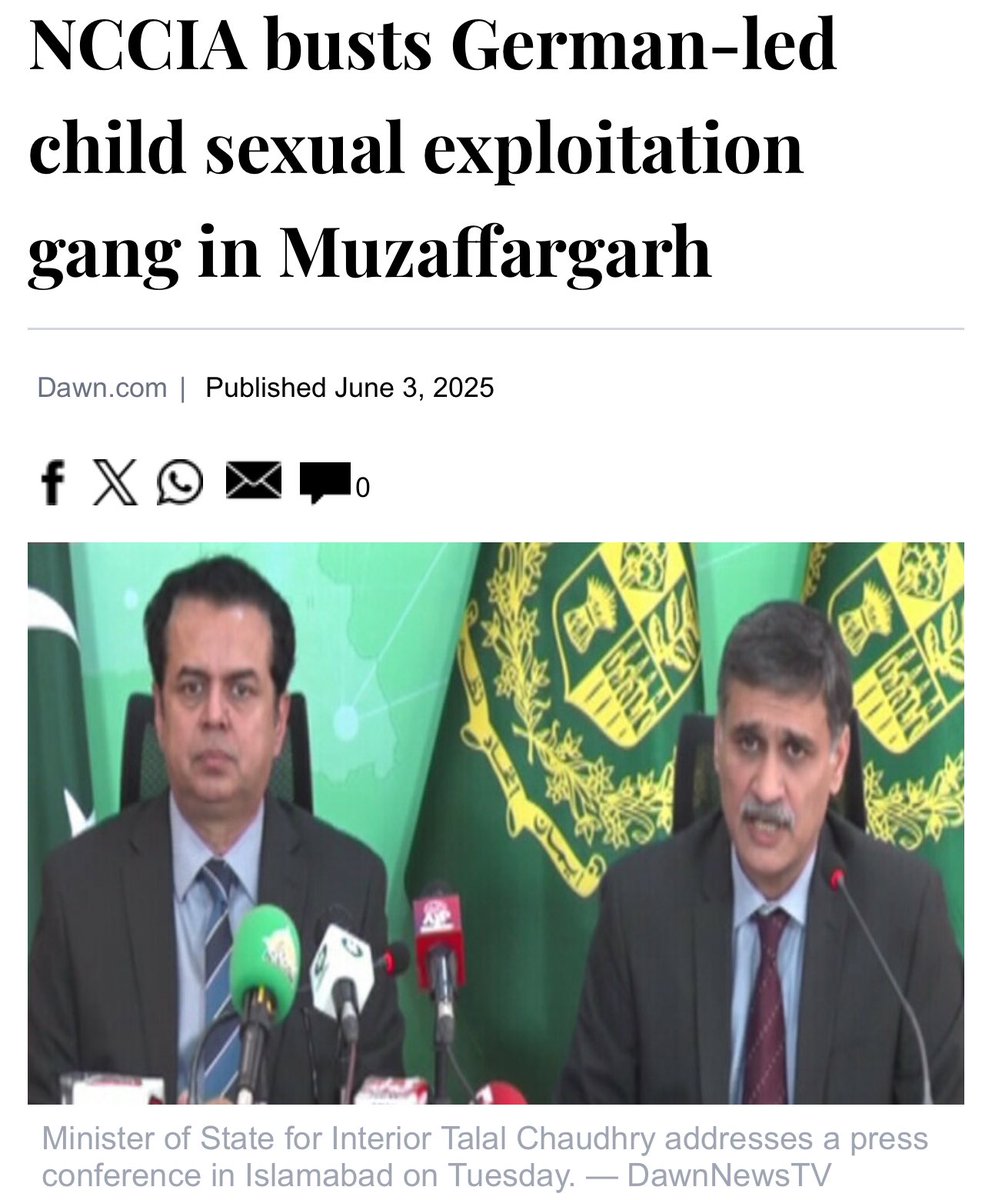How to get URL link on X (Twitter) App


 2/25 An inter‑departmental IMF team, joined by World Bank experts, spent months in Islamabad and Karachi in early 2025, meeting everyone from the Chief Justice and the State Bank Governor to FBR, NAB, key ministries, banks, regulators, civil society and business. The report was requested by the Government of Pakistan itself and is written into a 37‑month, 7 billion dollar IMF programme as a formal benchmark. In other words: this is the system looking at itself and putting the diagnosis on record.
2/25 An inter‑departmental IMF team, joined by World Bank experts, spent months in Islamabad and Karachi in early 2025, meeting everyone from the Chief Justice and the State Bank Governor to FBR, NAB, key ministries, banks, regulators, civil society and business. The report was requested by the Government of Pakistan itself and is written into a 37‑month, 7 billion dollar IMF programme as a formal benchmark. In other words: this is the system looking at itself and putting the diagnosis on record.



 2/11 German mastermind Reinz Andreas entered Pakistan April 7, operated freely for weeks, then departed April 28, a full month before authorities raided. Two locals arrested, four suspects including Andreas escaped. No one put him on the Exit Control List.
2/11 German mastermind Reinz Andreas entered Pakistan April 7, operated freely for weeks, then departed April 28, a full month before authorities raided. Two locals arrested, four suspects including Andreas escaped. No one put him on the Exit Control List.
